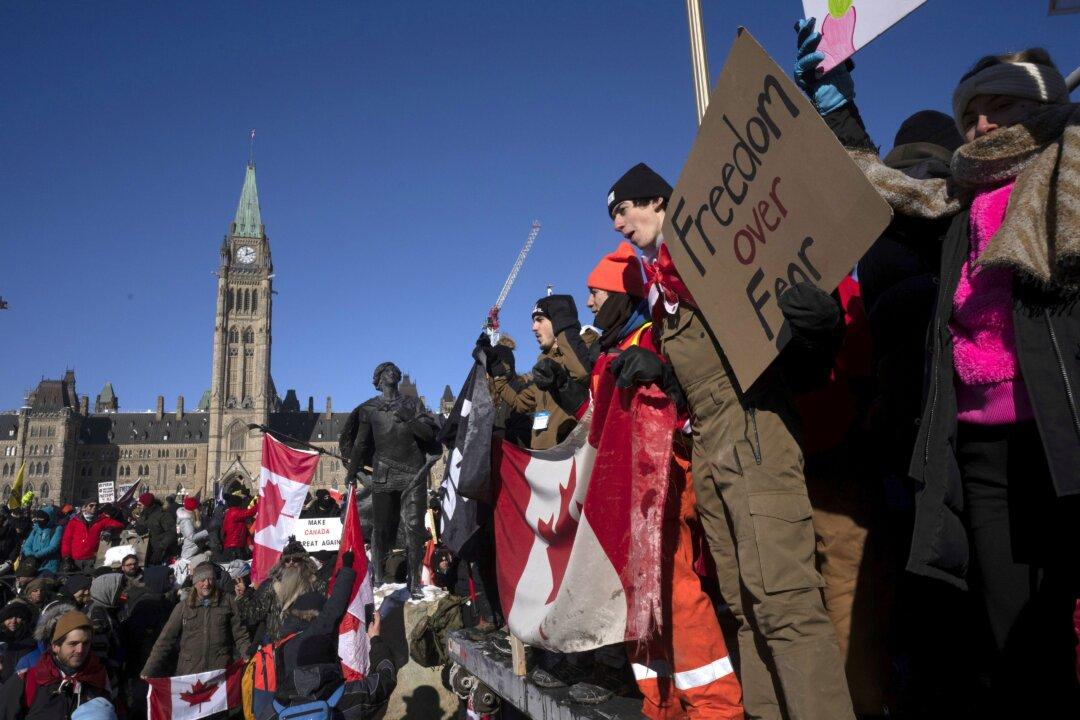The federal government’s claim that the Freedom Convoy was mostly foreign-funded was challenged on Thursday as a House committee met to review the fundraising behind the weeks-long cross-country protest.
The meeting of the Public Safety Committee was often tense as some MPs berated the crowdfunding platform GoFundMe for initially even accepting to carry the convoy’s fundraiser, and then for GiveSendGo to pursue it to this day despite legal action.





